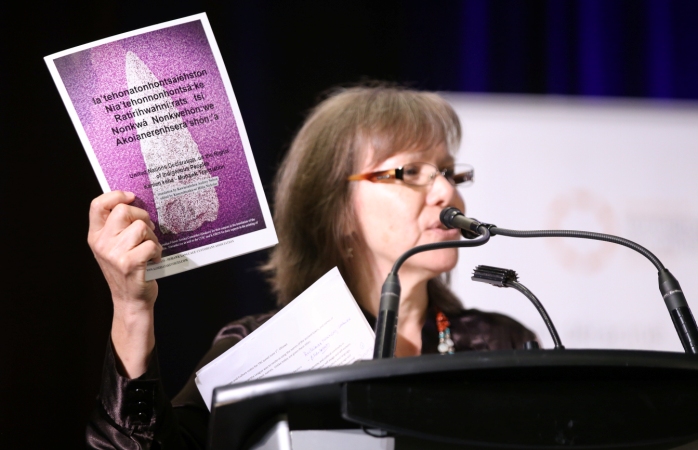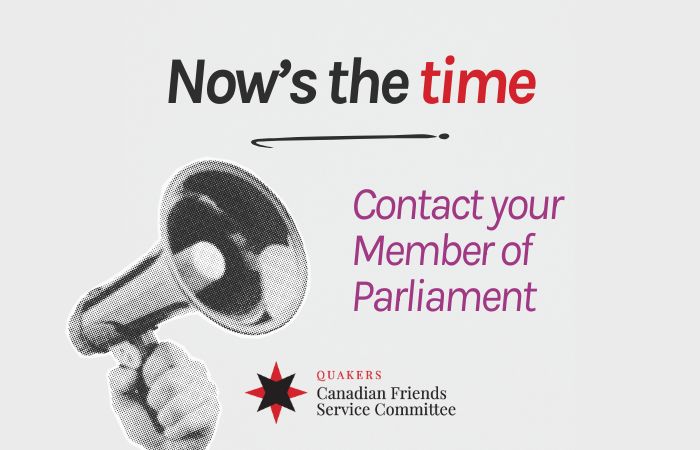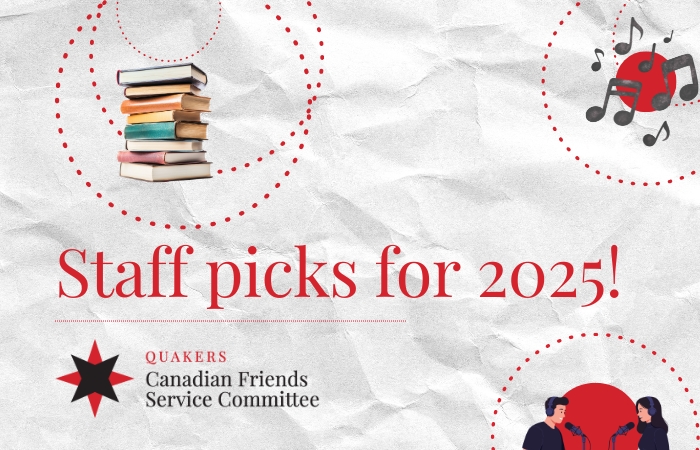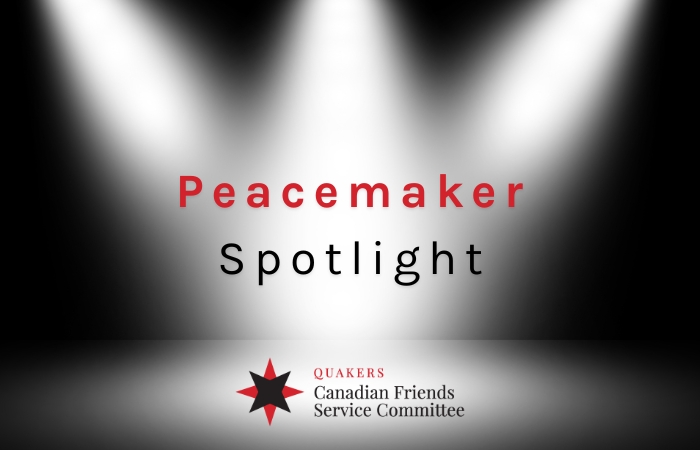Intellectual Property Rights
May 10, 2015
Canada should follow lead of Truth and Reconciliation Commission
June 9, 2015Canadian Friends Service Committee (Quakers) welcomes the report of the Truth and Reconciliation Commission
FOR IMMEDIATE RELEASE
“We have described for you a mountain, we have shown you the path to the top. We call upon you to do the climbing.” These were the passionate words of Commissioner Justice Murray Sinclair at the issuing of the final report of the Truth and Reconciliation Commission of Canada (TRC).
Canadian Friends Service Committee (Quakers) welcomes the 94 Calls to Action of the TRC and congratulates the Commissioners on their dedicated work. We recognize the solemnity of this occasion and pay our deepest respects to all those affected by the residential school experience.
“The children were meant to be the instrument of our own peoples' demise,” stated Grand Chief Edward John at a panel on the UN Declaration on the Rights of Indigenous Peoples during the TRC, "but it didn't work out like that." The TRC report is an in-depth documentation of the suffering of the gross and systematic human rights violations that took place in Indian Residential Schools. CFSC urges all Canadians to read and share the findings of the report, and to support it as a crucial step in the journey towards reconciliation.
Canadian Friends Service Committee was honoured to take part in the TRC's closing events including the Walk for Reconciliation and the handing over of the TRC report on June 2nd. We participated in panels on the dismantling of the doctrine of discovery and on the UN Declaration on the Rights of Indigenous Peoples.
We recognize that the settler populations of Canada have all benefited from occupation and usurpation of Indigenous lands, territories, and resources. The root causes of ongoing impoverishment and oppression of Indigenous Peoples must be identified and addressed. As Commissioner Chief Wilton Littlechild noted, reconciliation is a Canadian story that asks all to “open your mind and be willing to learn, and to link arms with Indigenous Peoples as we work together to heal and secure a better future.”
United Nations Secretary-General Ban Ki-moon praised the work of the TRC and encouraged “all involved in this effort [reconciliation] to follow up on the report’s recommendations, using the UN Declaration on the Rights of Indigenous Peoples as a road map.”
The UN Declaration constitutes a principled framework for justice, reconciliation, healing and peace. Former UN Special Rapporteur James Anaya has underlined that “implementation of the Declaration should be regarded as political, moral and, yes, legal imperative without qualification.”
The TRC aimed to, “Guide and inspire Aboriginal peoples and Canadians in a process of truth and healing on a path leading toward reconciliation and renewed relationships based on mutual understanding and respect.” In the report issued, the Commission noted “that a refusal to respect the rights and remedies in the Declaration will serve to further aggravate the legacy of residential schools, and will constitute a barrier to progress towards reconciliation.”
Truth telling is a necessary step for reconciliation, and there is much work yet to be done. As an integral part of this work, we are committed to the full and effective implementation of the UN Declaration on the Rights of Indigenous Peoples.
We call on the government of Canada to closely collaborate with Indigenous Peoples in the full and effective implementation of the TRC’s Calls to Action.
On this occasion of the formal closing of the Truth and Reconciliation Commission, CFSC acknowledges the dedicated strength and courage of all those involved and we commit to the journey ahead of us. As we step forward together to “climb the mountain” towards reconciliation we are inspired by the words of Commissioner Chief Wilton Littlechild who described the seven most important words in this work: “I’m sorry, I love you, thank you.”
Download this media release in PDF.
Learn more about our work in support of Indigenous Peoples' human rights.




